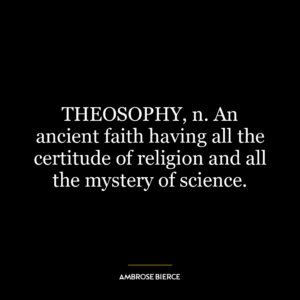Admiration, n. Our polite recognition of another’s resemblance to ourselves.
The quote “Admiration, n. Our polite recognition of another’s resemblance to ourselves.” is a witty and somewhat cynical observation on human nature. It suggests that our admiration for others is often rooted not in their unique qualities, but in their similarities to us. It implies that we are naturally inclined to admire those who reflect our own values, beliefs, and behaviors, as it reinforces our self-image and validates our choices.
This concept can be seen in various aspects of our lives. For instance, in our social circles, we tend to gravitate towards those who share our interests, values, and worldviews. In the realm of politics, we admire and support leaders who espouse policies and ideologies that align with our own. Even in the world of art and entertainment, we often admire artists, musicians, and actors whose work resonates with our own tastes and experiences.
The quote also offers a thought-provoking perspective on personal development. It suggests that our admiration for others can serve as a mirror, reflecting our own strengths, weaknesses, and aspirations. By recognizing the qualities we admire in others, we can gain insight into our own character and values. This can guide our personal growth, helping us to cultivate the traits we admire and address the areas where we fall short.
However, the quote also serves as a reminder of the limitations of this self-focused admiration. If we only admire those who are like us, we risk becoming insular and close-minded, unable to appreciate the diversity of human experience. Therefore, while it’s natural to admire those who reflect our own image, it’s also important to challenge ourselves to admire and learn from those who are different from us. This can broaden our perspectives, enrich our understanding, and foster personal growth.















